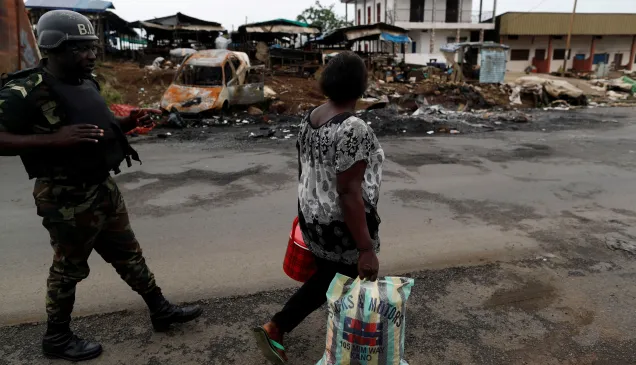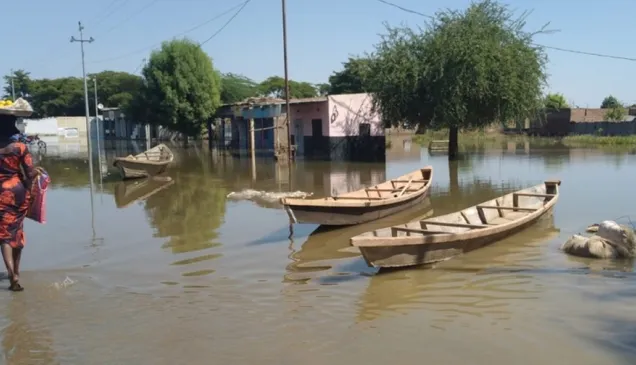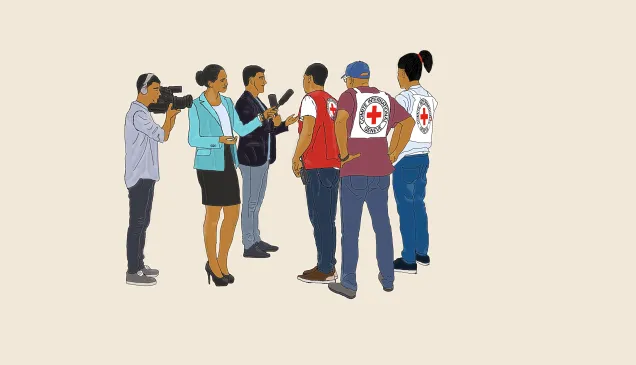Cameroon: Five stories of violence, escape and survival
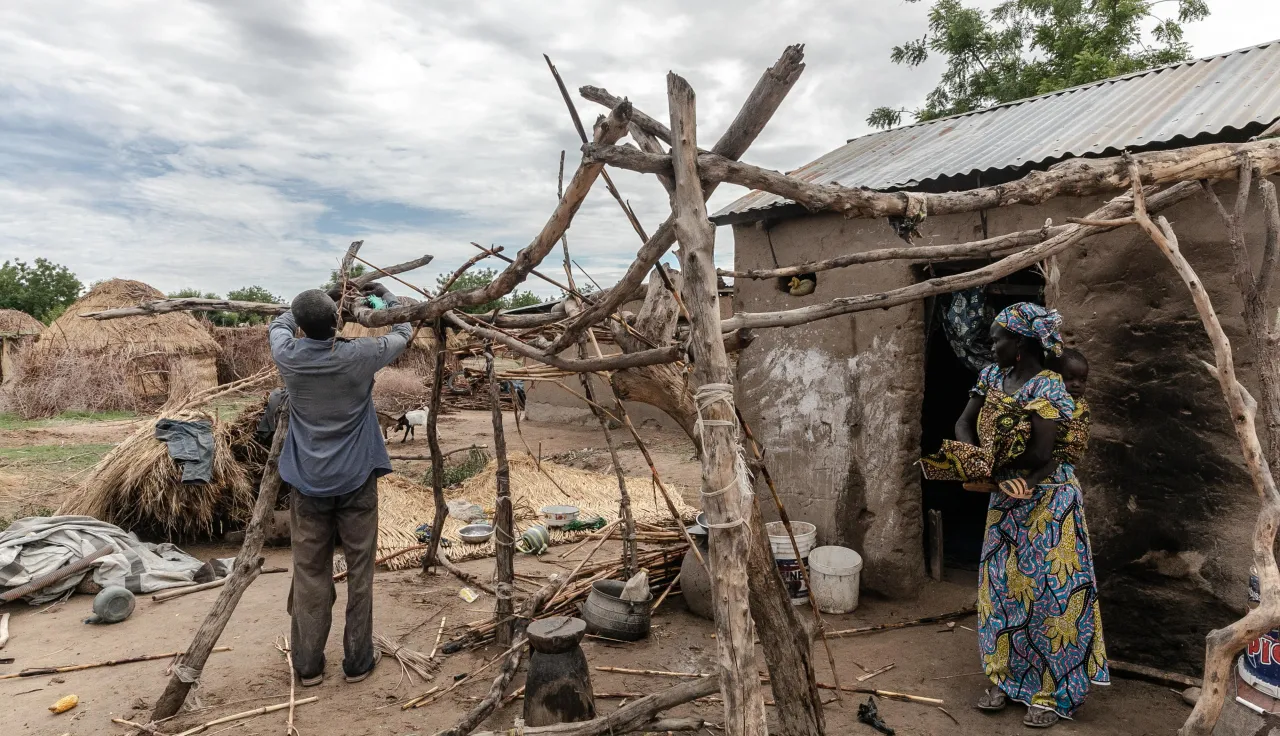
Since 2012, Niger, Nigeria, Chad and Cameroon have been ravaged by recurring violence that has gone largely unnoticed by the global media. Displaced in Cameroon’s Far North Region, Hamadou, Hadidja, Moussa, Amaga and Tongoché speak about their lives in the town of Tolkomari, marked by extreme climate events, a lack of economic opportunity and security, and the increasing struggle to feed themselves and their families.
Hamadou, 78 years old – A large family to feed
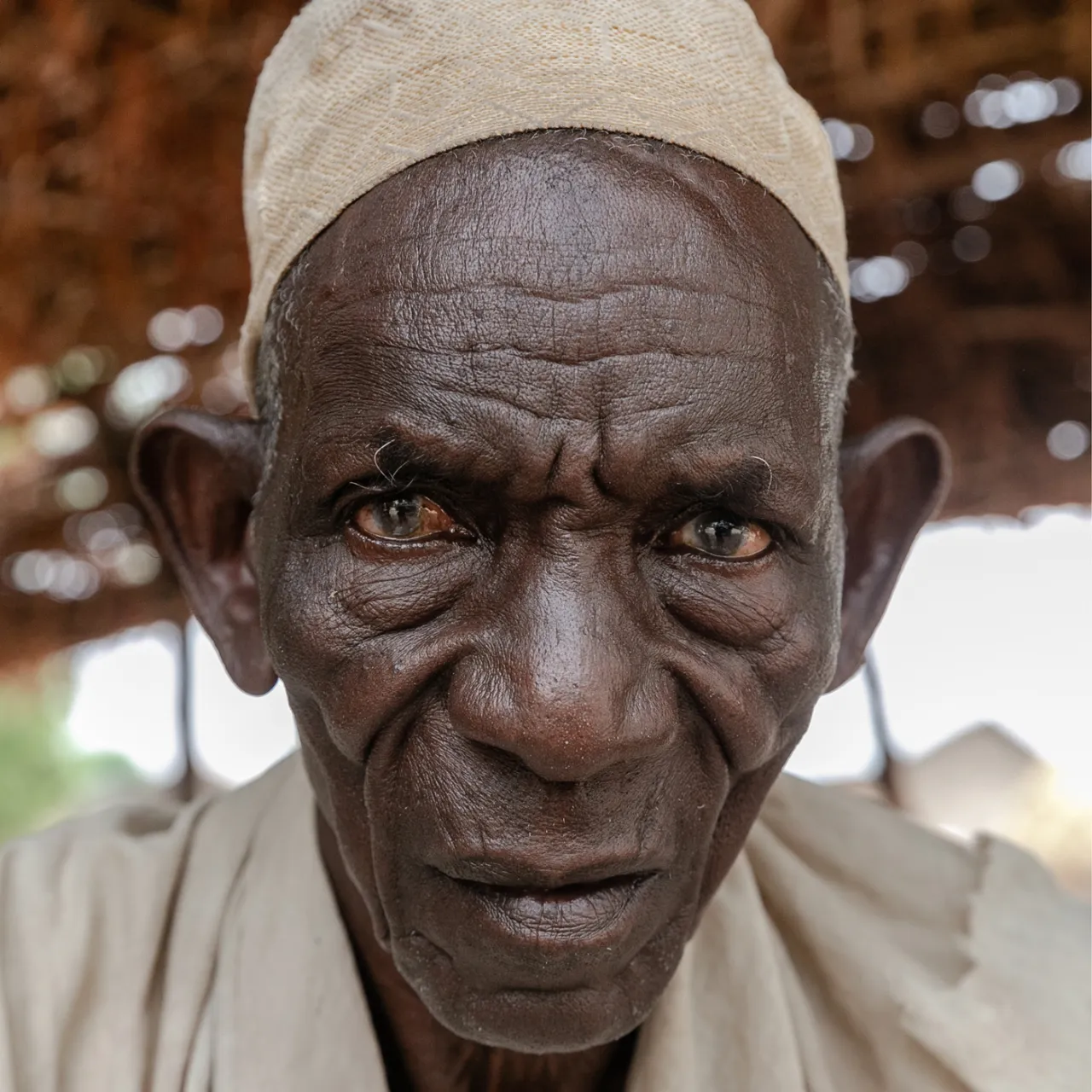
As a child, I didn't have the chance to go to school, so I've been a shepherd all my life.
My wife and I had nine children. We lived in the village of Malabré with some livestock and our fields. We didn't have much, but we didn't complain. People from the neighbouring villages often told us about the attacks happening there, but our village was left alone.
Three years ago, our village was finally attacked. Around a hundred armed men came and started shooting at the villagers who tried to run away. They were shouting and ransacking people's huts and houses.
They didn't assault me. They took the little money I had on me and left. That night, they carried some of the young people away with them. I have no way of knowing where my children are.
"The next morning was horrific. Three men from the village had been killed, including two of my sons."
After that attack, my wife and I gathered together our 17 grandchildren and our sons' wives and left to live in Souloumri, near Tolkomari.
Life isn't always easy. Even though I am an old man, I have to take care of my whole family. I'm not able to feed them the way I should. We live in straw huts and sleep on the floor. For the last three months, my wife has been unwell. I'm very worried about it. I have to rent a field to grow maize to feed my family.
Hadidja Mamat, 25 years old – Afraid to go home
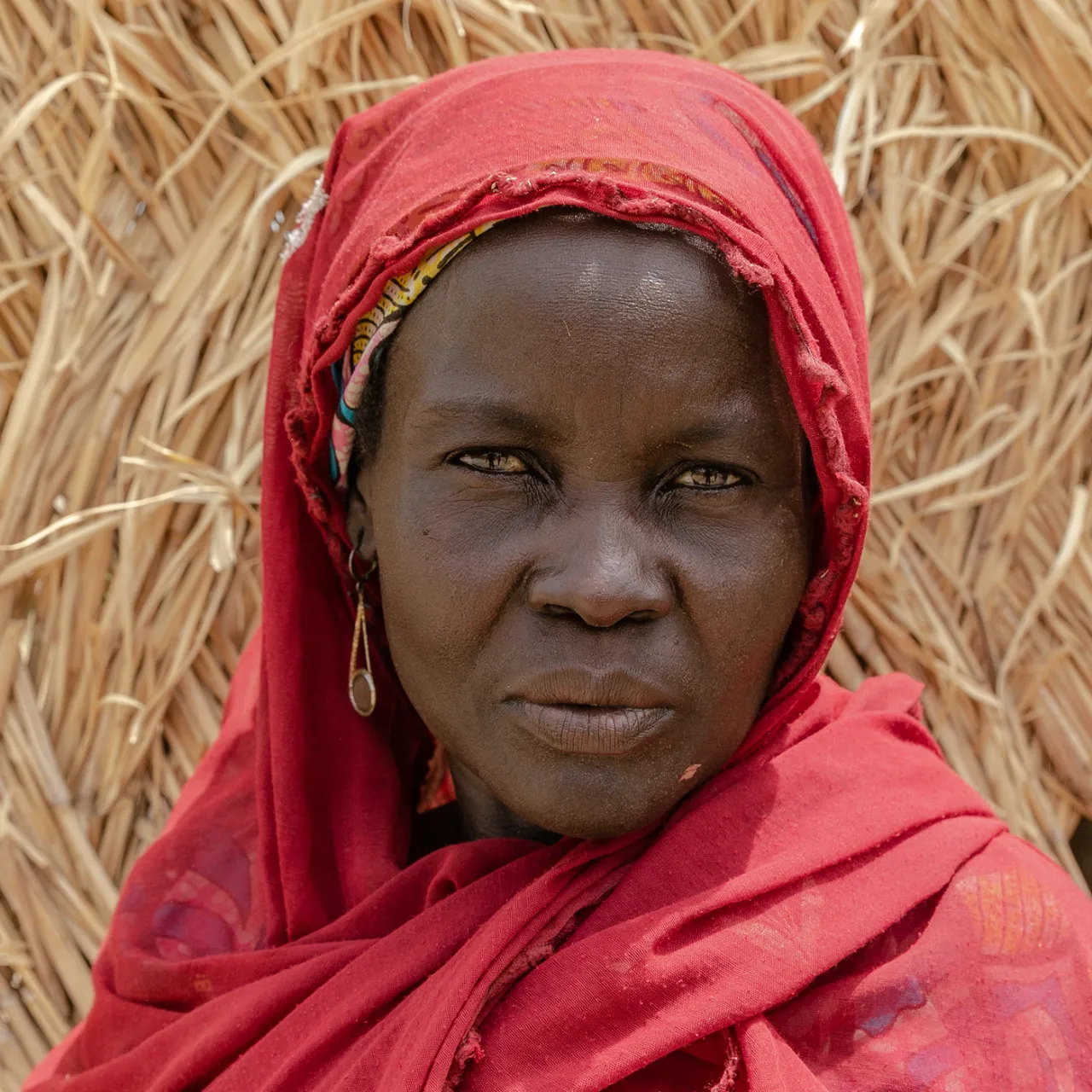
My husband and I lived peacefully in the village of Bornori. I worked in the fields, and my husband was a bricklayer. I grew vegetables, maize and millet – enough to feed the family and still have some to sell at the market.
While we waited for the harvest, I would go to the neighbouring villages to look for work as a cleaner or salesperson. That's why, in 2018, I was in Tolkomari with my children. I learned from some people who were running away that our village had been attacked by armed men. They had killed many people.
"We lost everything overnight: our houses, our fields, our livestock."
After a few days, we left Tolkomari and went to Souloumri, where some people from Bornori had gone. The blama, or traditional chief, had grown up with my husband; he helped us a lot when we arrived. We were given a place to build our little house.
We've been here for four years now. Life is hard, but we don't have a choice. My husband goes every day to a worksite in Tolkomari. I help the women in the fields and get a little money at harvest time. We don't earn enough to rent a field to farm, or to send the children to school.
We have so many problems: the cost of living, feeding the children, the lack of work, and we have to walk for an hour to find drinkable water. But in spite of it all, I would rather stay in Souloumri because it is peaceful. Even if things were to get better in Bornori, I wouldn't go back because I am very afraid.
This week, I want to change the roofing on our little house, because the rain leaks in through the straw.
Moussa Tchongo, 66 years old – Missing his old life
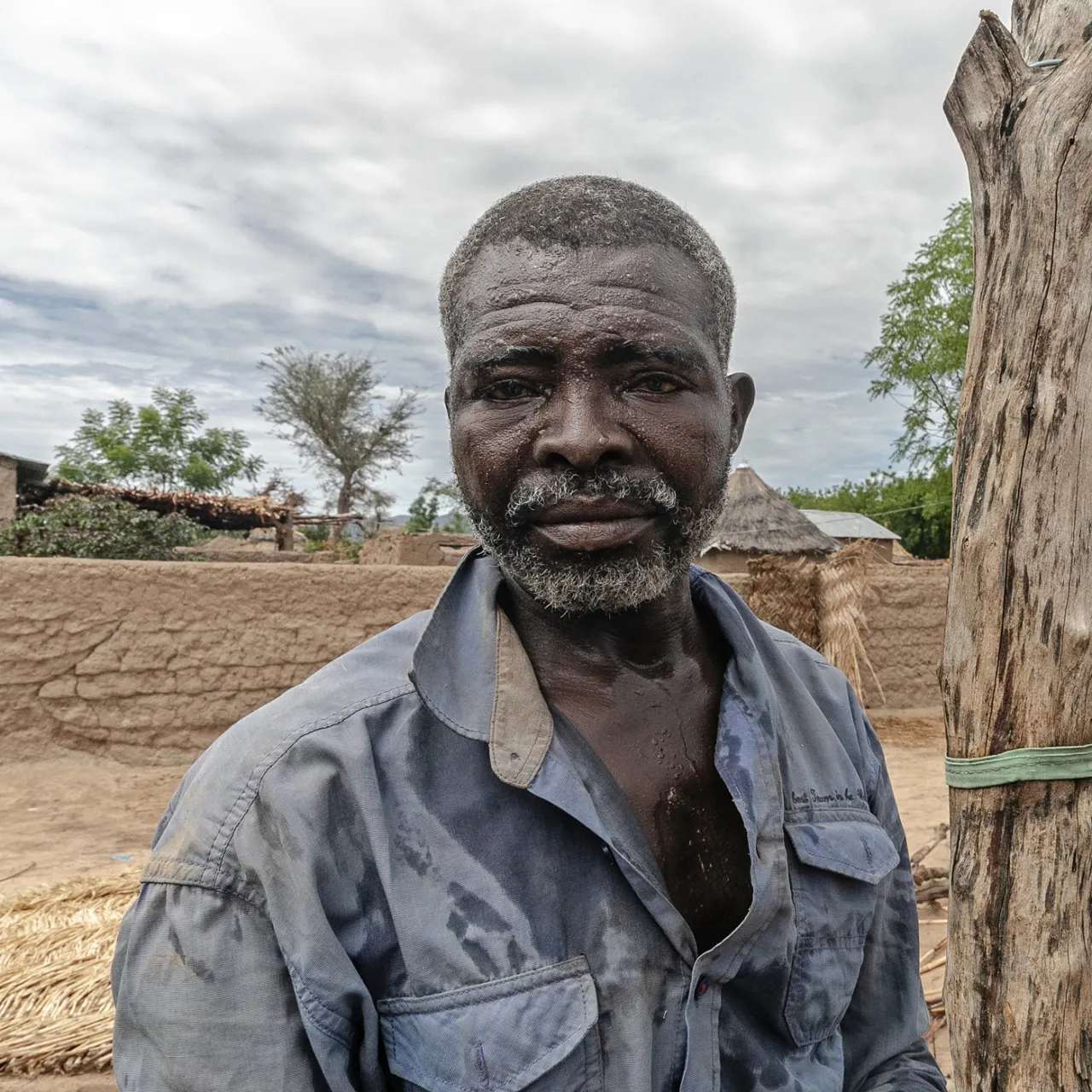
I've always been a farmer. My wife and I didn't have the chance to go to school, but we managed to get our children an education. Watching them go off to school and come home again brought us great joy. In Kidji, we were happy: we had a big house and fields, and life was easy and affordable.
Towards the end of 2015, people from the neighbouring villages started telling us that they were being attacked by armed men. Not long after that, there were attacks on our village too. The men came to steal our things and burn down our houses, so we had to spend as little time as possible in the village. We stayed in the fields during the day and spent nights in the bush.
"One night, we heard some men coming. They started shooting and it was total panic – everyone just ran."
One of my brothers was hit by a bullet and died that night. When I returned to the village, I had a shock. The village had also been attacked, and my sister Ganafa had been shot. She died a few days later at the hospital. She was 21 years old and left behind a child. We lost nearly everything. My wife and I took our children, put the few belongings we still had left on my bicycle, and walked to Souloumri.
It's been more than six years since we left Kidji. I still have fields there. I sometimes go there with fear in my heart; my wife goes too, with other women to work in the fields. We are safer in Souloumri, but things are different. I have to buy food instead of growing it, which is not easy, and we don't always eat our fill. I earn a little money on construction sites or in the fields. I have to fight for my family.
I often think about our old life in Kidji and I miss it. But I live in Souloumri now – I've accepted that.
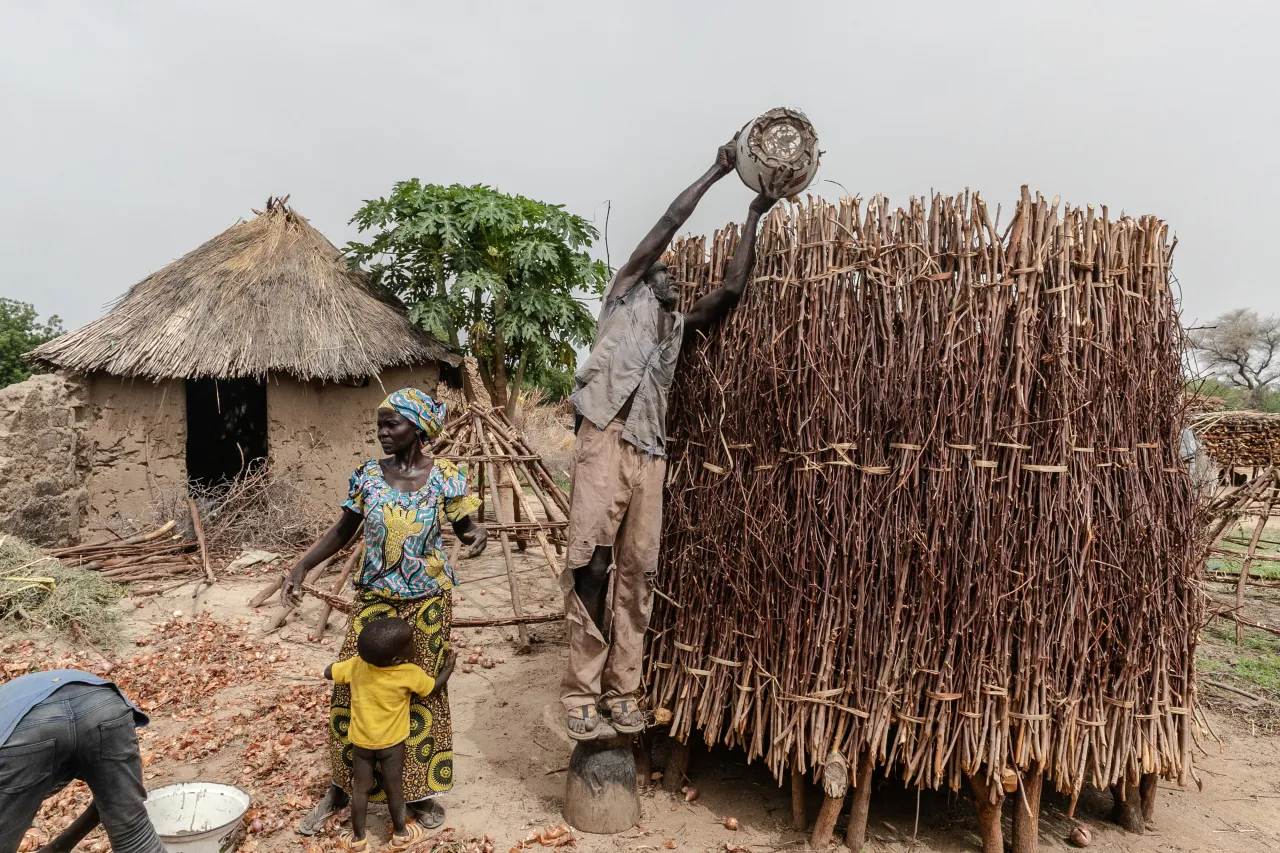
Moussa helps his wife store onions. He supports his family by working as a day laborer in the fields or on construction sites.
Amaga Gojide, 30 years old – Abandoned but still fighting
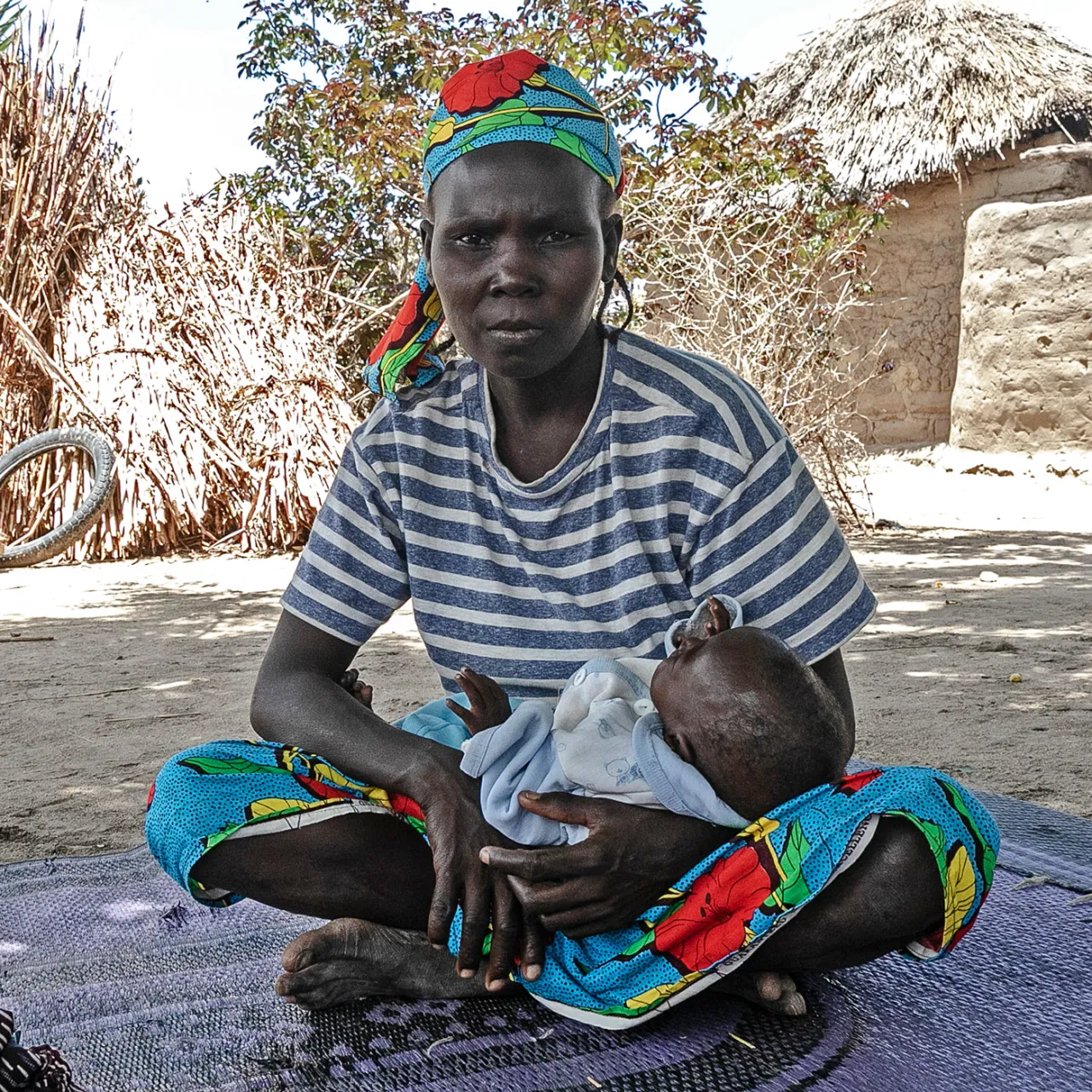
I lived in Goudoumboul with my parents, who were farmers and livestock breeders. I helped them my entire childhood. When I met my husband, we moved to his village, Mala-Brahim. Life there wasn't easy, but we faced the challenges together. We made our living from farming.
In early 2015, we had to leave Mala-Brahim and abandon our house and belongings because our village was being attacked regularly. We moved to the village of Gouachakalé. It was hard to start over from nothing. At first I didn't know anyone. We were given a bit of land to build our little house.
"My husband and I had nine children. He left me not long after we arrived in Gouachakalé."
Five of the children died in infancy. After my husband left, I had to raise our four surviving children alone. It's very hard to feed them, and they don't go to school. The money I earn cleaning houses isn't enough.
When we left Mala-Brahim, I was breastfeeding my last child, Duala, who was almost seven months old. My milk stopped, so I went to the doctor and traditional healers, but that didn't help much. I had to feed her millet porridge or products donated by NGOs. Duala would gain weight when I gave her the products but lose it right away when they ran out.
For the last five years, I've rented a small plot of land so I can grow peanuts, millet and maize. At harvest time, I share the crops with the owner of the field.
When I had my fields, I lacked for nothing. My husband was there and he helped me. Now I've lost everything. I have to work to feed my children, but I can't manage it.
Tongoché Njeré, Nigerian refugee – Trading water for blood
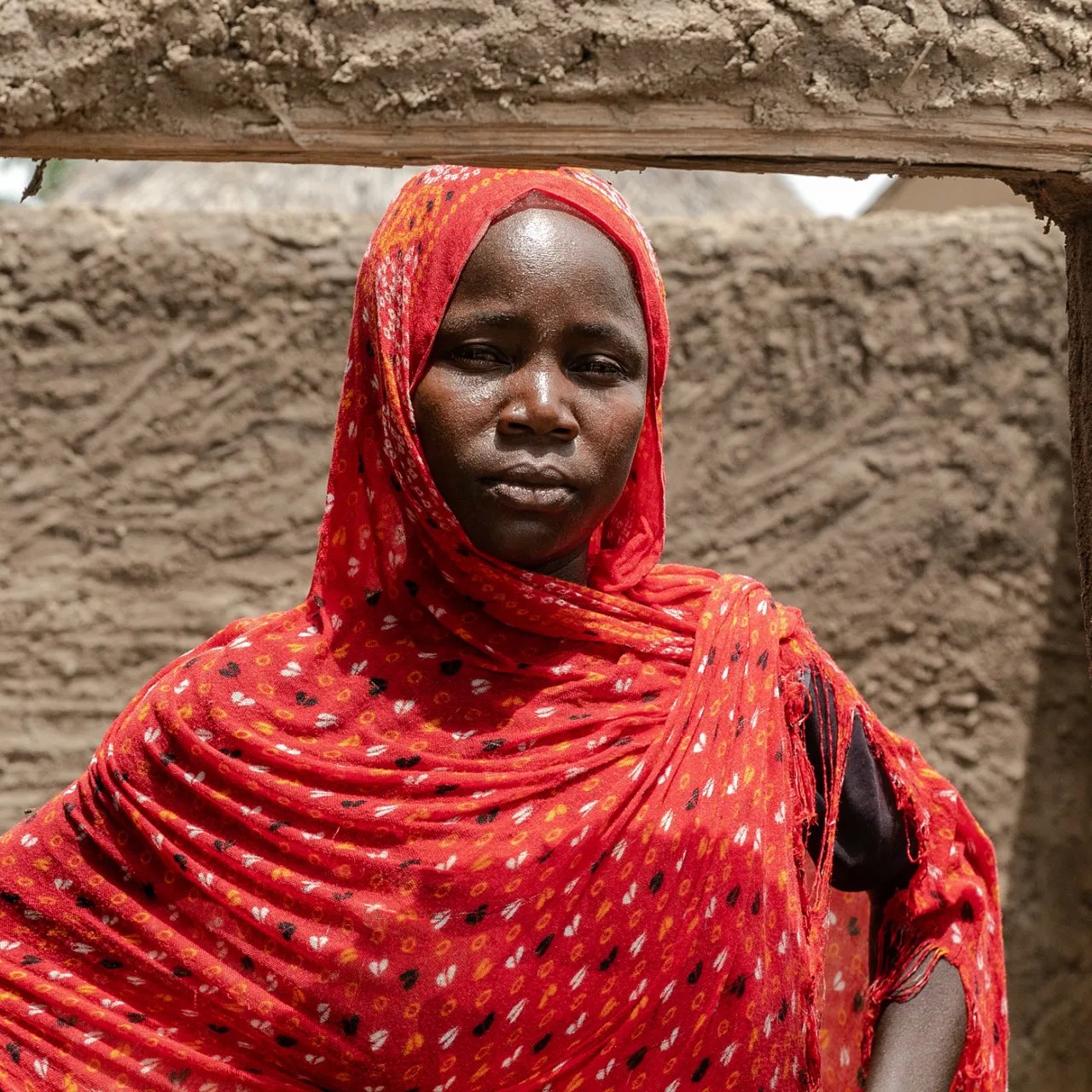
I grew up with one of my aunts in Mahintir, a small village in Nigeria.
When I was 18, I met my husband Ali Mahina, who was from Cameroon. We grew beans, wheat and millet. Our first three children were born in Nigeria. We were happy there, but everything changed in 2015.
One day when I was coming home with my children from the field, I saw that some of the houses in the village were on fire. Armed men had been there; they came back many times. They wanted to catch my husband, but he had fled to Cameroon. They wanted to force me to change my religion, but I wouldn't do it. When my husband came back, we fled to Kerewa, a village in Cameroon close to the border.
We got along well with the other people who lived there. We were able to grow and sell our crops at the market. But we were never really safe, because the armed men would sometimes raid the village.
In 2017, during one of their attacks, my husband ran away. He was stopped because he didn't have his identity card. He spent over six months in prison. When he got out, we moved to Souloumri. We've lived there for almost five years now.
"Our children haven't been to school since the crisis started. We can't make any plans, because anything could happen at any time."
Today, we have to rent fields to grow beans and millet. My husband collects wood in the forest. He hunts wild animals sometimes, and I cook and sell them. When we have nothing left to eat, I go to the butcher at the market and trade two canteens of water for cow's blood. I add peanut butter, salt and onions and cook it into a paste over the fire. I keep some for the children and I sell the rest to the people in the village – they can't get enough of it.
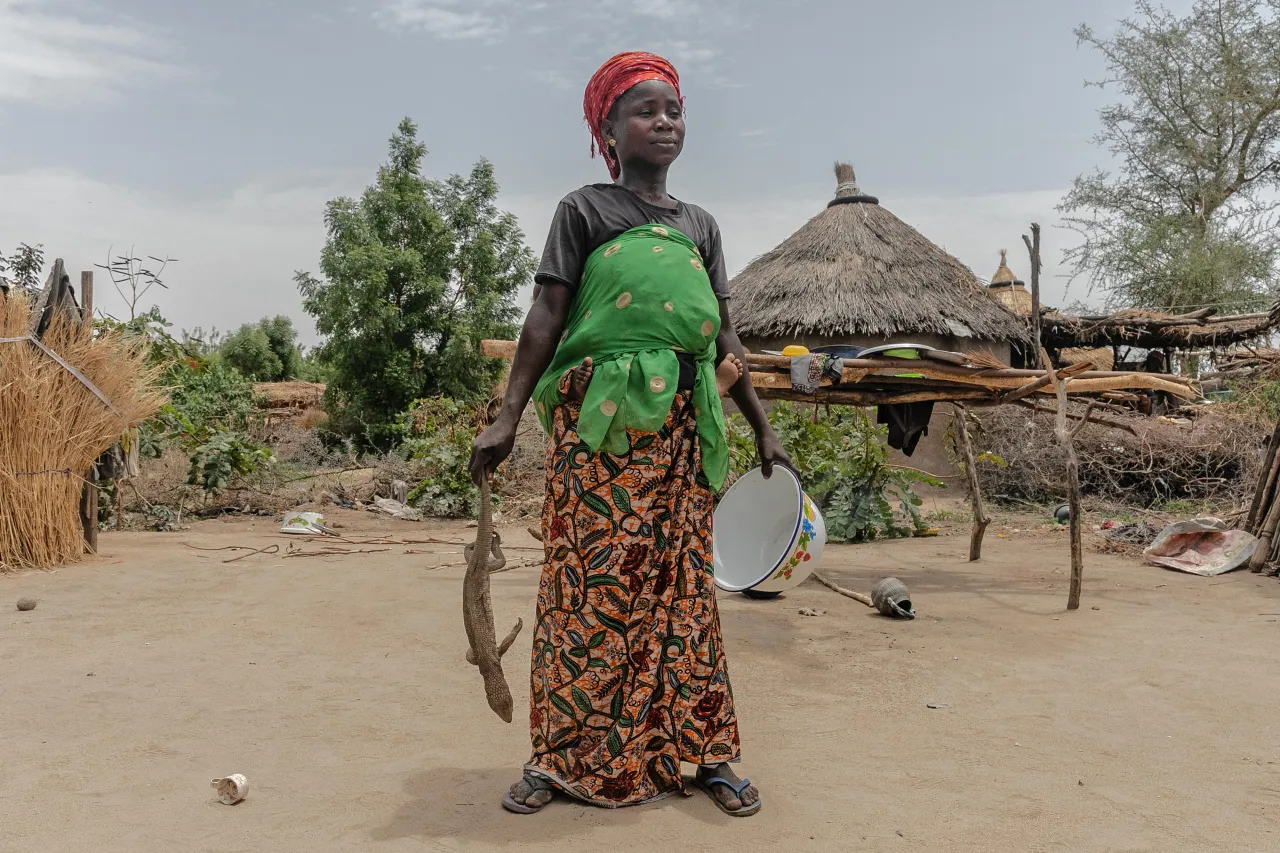
Tongoché cooks animals hunted by her husband in the forest to improve daily life.
All pictures: Daniel BELOUMOU / ICRC

